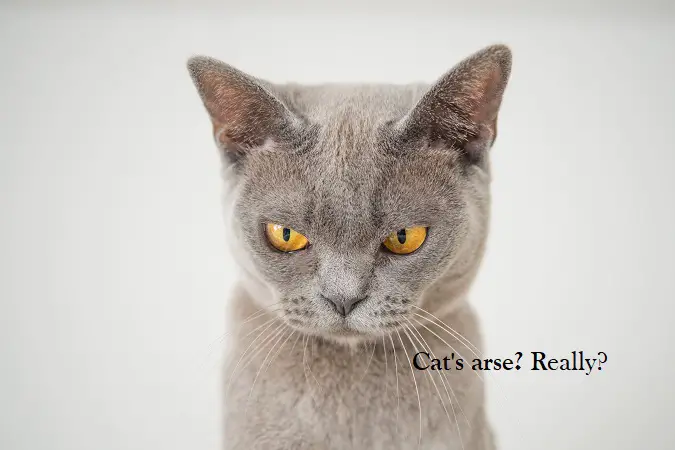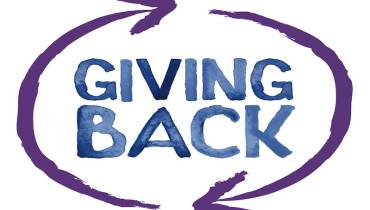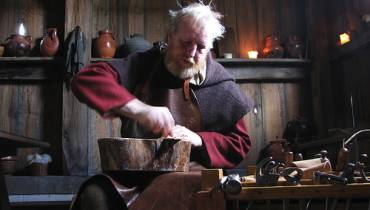Hilarious English Idioms to Make Your Day

An idiom is an everyday figure of speech or metaphorical expression that is commonly used by a language’s native speakers. Its meaning cannot be taken literary because it often goes against the logical rules of grammar and common occurrence.
If you look closely at the literal meanings of most English idioms, you will realize they are often downright hilarious.
Here're some of the funniest English idioms you may not know about (but should) that will leave you laughing and smiling from ear to ear. The hilarious idioms can also add color to your writings.
Funniest English Idioms You May Not Know (But Should)
Most of these idioms are drawn from British English, but isn't it about time you learnt how to speak (and write) like a regular Brit?
1. "Do a Devon Loch"
Devon Loch was a racehorse that collapsed just short of the winning line of the 1956 Grand National race in the UK.
If someone does a Devon Loch, they suddenly fail when everybody expects them to succeed or simply crumble at the very last minute when they were almost winning.
Example: It was shocking how Manchester United did a Devon Loch in the last minutes of the match against Arsenal.
2. "Bob’s your uncle"
This idiom is a catch phrase used when ‘everything is alright’ and means that something will be done, sorted or successful. It’s the British equivalent of “…and that’s that,” or “there you go!” How it is used is often quite funny.
Example: You want to go to the market? Go straight on until you reach the main road, take the first right, and Bob’s your uncle–you’re there!
3. "Do a runner"
When someone does a runner, he leaves a place in a hurry in order to avoid paying for something (like in a restaurant) or flees a difficult situation to escape punishment.
Like many British idioms, this particular idiom originates from one of Shakespeare’s popular plays, Anthony and Cleopatra, a gripping story of romance and tragedy that was first performed in 1606.
Example: At this point, the con artist did a runner with all her money.
4. "Enough to cobble dogs with"
This incredulous phrase is used to refer to a surplus of anything. The humor in the image contained in the phrase becomes apparent when you consider that a cobbler repairs shoes.
If a cobbler has enough leather to cobble an animal that has four feet, then that cobbler definitely has a surplus.
Example: We’ve got enough beer in this party to cobble dogs with.

5. "Fall off the back of a lorry"
This is the British humorous way of saying you acquired something that was probably stolen, or you are trying to sell something that’s stolen or illegitimate.
The American equivalent of the phrase is: “off the back of a truck.”
Example: I don’t know where you get this stuff. I suspect off the back of a lorry.
6. "Hairy at the heel"
This disparaging and obnoxious phrase was originally used by the British upper-crust to refer to someone who is ill-bred, dangerous or untrustworthy. The image of a hairy heel is indeed striking and funny.
Example: I can’t say I like Bob. I’ve once or twice had a row with him. He’s a bit hairy at the heels.
7. "Cat’s arse"
The humble cat’s arse–originally known as “felinus bottomus” to the ancient Greeks–is sometimes used to describe the facial expression adopted by a scorned woman.
This rather vulgar phrase is apparently used because the (*) shape created by the woman’s lips resemble a cat’s backside.
Example: Bob won’t come to the pub with us–he’s afraid his wife will give him the ‘Cats Arse’ if he does.

8. "For donkey’s years"
This British expression jokingly alludes to the considerable length of years the animal works with nothing to show for it.
If you have done something for donkey’s years, then you have done it an awfully long time without any change or much to show for it.
Example: I’ve been a plumber for donkey’s years. It’s time for a change.
9. "All talk and no trousers"
Someone who is all talk and no trouser talks and thumps his chest a lot about doing big, important things, but doesn’t actually take any action.
The thought of someone running his mouth with no trousers is indeed funny.
Example: Be careful. Politicians are known to be all mouth and no trousers.
10. "If you’ll pardon my French"
“Pardon my French,” or “excuse my French” is an informal apology for the use of profane, swear or taboo words.
The expression dates back to the 19th century when it was fashionable for Englishmen to use French words (a foreign language then) in conversation, knowing the listener may not understand.
Example: What she needs is a kick in the ass, if you‘ll excuse my French.
11. "When pigs fly"
Pigs cannot fly. This often sarcastic idiom is commonly used among friends in the US to mean that whatever you are discussing will never happen.
A similar saying was first used in Scotland in the late 1500s and a version of which even appeared in Lewis Carroll’s 1865 novel Alice in Wonderland.
Example: Yea, right! You will get Justin Bieber to ask you out on a date when pigs fly!
12. "Cat got your tongue"
Imagine a cat eating or holding your tongue! Would you be able to speak? No, probably not. That is exactly what the phrase means. If a cat got your tongue, you are unable to speak. Your silence is oddly suspicious.
Apparently, the phrase stems from the middle ages when witches were greatly feared. It was said that if you saw a witch, her cat would somehow “steal” your tongue so you couldn’t report the sighting. Not a nice thought but definitely a reason why you would be speechless.
Example: Come on, Bob! Tell us what you think about our little party. What’s the matter? Cat got your tongue?
13. "Have a one track mind!"
Most railroads have two or more tracks so trains can go in different directions. However, on a one-track railroad line, train traffic can only move in one direction at a time.
If you have a one track mind, your mind is limited to only one line of thought or action. You are always thinking about the same thing.
Example: Oh, shut up, Sean! All you think about is food—you have a one–track mind.

14. "Chew the fat"
This idiom means to chat in a friendly and leisurely way or engage in casual gossip sessions. It is said to stem from the practice of sailors, who while working together, or during periods of rest, would converse leisurely while chewing on salt-hardened fat.
A variation of this idiom is “chew the rag” in American slang.
Example: “The women have gone to one of their friend’s house to chew the fat,” John smiled.
15. "More holes than a Swiss cheese"
While delicious, Swiss cheese is hard, pale yellow or white with many holes.
If something has more holes than a Swiss cheese, it has a lot of problems; there are many things wrong with it. It is incomplete or lacks important components.
Example: You can do better, Mary. This essay has more holes in it than Swiss cheese.




















